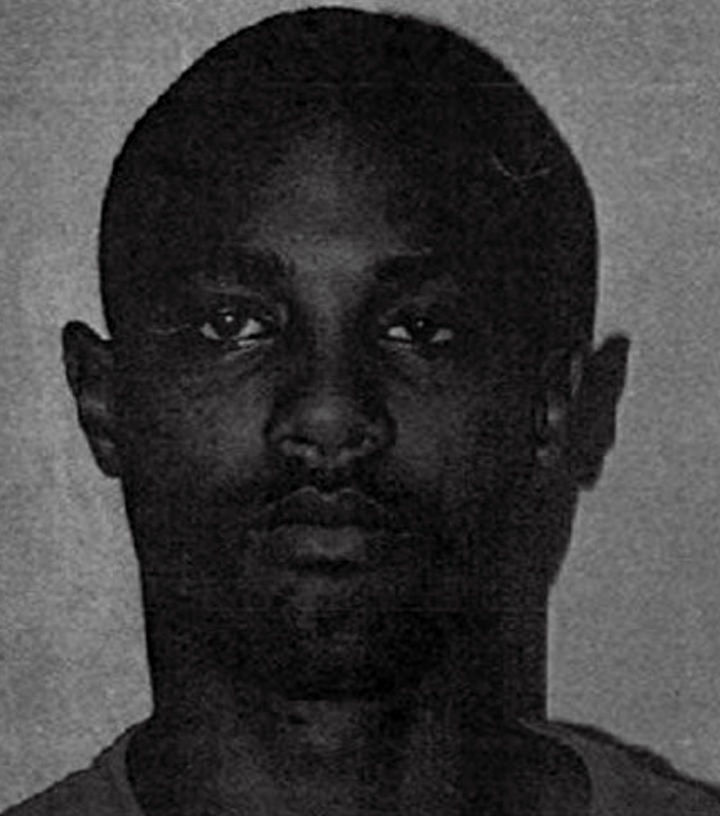(Trinidad Express) – For the first time in Trinidad and Tobago in more than a century, a person accused of murder has been granted bail.
The possibility of that happening is something that continues to be strongly resisted by the State but on Friday morning, Supreme Court Master Nalini Singh said yes to an application by attorneys representing murder accused Joel King, granting him bail in the sum of $1.5 million with a surety or a cash alternative of $750,000.
Up to yesterday evening, the bail had not been accessed and therefore, King remained in prison custody.
But once it has been secured, there are strict conditions by which King must abide or he will be rearrested and the bail automatically revoked.
This came just over a month after the Court of Appeal found that Section 5(1) of the Bail Act of 1994 was unconstitutional as it breached the doctrine of separation of powers insofar that it removed the jurisdiction of the court to consider bail for those charged with the capital offence.
In addition, the panel of judges comprising Chief Justice Ivor Archie and Justices of Appeal Mira Dean-Armorer and Malcolm Holdip unanimously held the section was not saved law, as argued by attorneys representing the Office of the Attorney General and, therefore, it was open to judicial challenge.
Essentially, the judges found the section was not justifiable in a society that had regard to the constitutional rights of citizens.
Clean criminal record
Just after 10 a.m., yesterday the master approved King’s application filed by attorneys Larry Williams and Toni Roberts.
Their client is accused of shooting to death Nkosi Harricharan on April 15, 2014, at Hermitage Road, Belmont.
At the hearing, while Singh said there was no doubt the charge was serious in nature this was only one factor that had to be taken into consideration by the court.
She stated having reviewed the all the electronic files as well as the submissions by the Office of the Director of Public Prosecutions (DPP), the State had failed to convince the court why King should remain in prison custody given that he was committed to stand trial since 2017, but that trial is yet to take place.
She also noted King had a previously clean criminal record before being charged with the offence.
“In so far as the character and antecedents of this applicant go however, this consideration is not relevant to the question of the applicant surrendering to custody as he is facing a mandatory sentence (of death) which remains unaffected by his character and past history or antecedents.
“At any rate, the court has noted and State Counsel agrees, that the applicant in this case has what defence counsel Mr Larry Williams calls an ‘effective good character’.
“On the question of associations, no evidence of association can be inferred from the facts of the State’s case nor was evidence of association derived from any police intelligence presented to this court.
“As such this heading is also irrelevant in assessing the likelihood of the applicant in this matter failing to surrender to custody,” she said.
While the master said the court had raised with State attorney Veona Neale-Munroe the possibility of using electronic monitoring equipment, and while the court was prepared to make this a condition, the Office of the Director of Prosecutions (DPP) said it will not be supporting electronic monitoring in this instance.
However, in the granting of the application, Singh went on to impose 21 other conditions. If any one of those conditions are breached, King will be rearrested and his bail automatically revoked.
BACKGROUND
On February 17, the Appeal Court ruled in favour of former murder accused Akilli Charles in an appeal he brought challenging the constitutionality of section 5(1).
That constitutional claim was previously dismissed by Justice Joan Charles at the High Court, but the Appeal Court justices eventually reversed the decision of the High Court judge.
They agreed with submissions made by Charles’s attorneys led by Anand Ramlogan SC that the section violated sections 4 and 5 of the Constitution and therefore it should be struck out.
At the appeal, it was pointed out by lead attorney for the State Fyard Hosein SC, that the last time someone in this country had been granted bail for murder was in 1917.
Charles’s argument was not that everyone accused of murder should be granted bail, but simply that they should at least have the opportunity to apply for bail and those applications would then be considered on a case-by-case basis on a number of factors.
In delivering the court’s ruling, Chief Justice Archie said when applications are made, they will be considered individually and a decision made based on the various factors including the circumstances of the murder; the strength of the evidence; the likelihood of an accused re-offending and the possibility of them fleeing the jurisdiction.
The Chief Justice had pointed out he did not have the trepidation of the AG’s Office that any floodgates would be open, but regardless of how many applications were made, “the court will have to deal with it in a structured way given the resources it has”.
Following the ruling, the court granted a “bridging order” which is essentially a temporary stay of its findings. That bridging order however, expired on March 3, and the court refused to grant an extension in spite of an application by the State for it to do so.
What the court did do however, was grant conditional leave to the AG’s Office to appeal its findings at the Privy Council in London, England, and that court may then grant a stay if it sees fit.
Earlier this week, the Appeal Court granted final leave to the AG’s Office to appeal however, a date is yet to be set for the Privy Council hearing.






